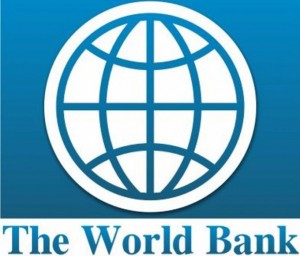World Bank fears 2016 election spending would cause slippage in IMF programme implementation
 The coming year 2016, is an election year in Ghana, and it is in such times that the government budget and financial programmes overrun projected and allocated limits – it is a historical fact.
The coming year 2016, is an election year in Ghana, and it is in such times that the government budget and financial programmes overrun projected and allocated limits – it is a historical fact.
Development partners like the World Bank fears that the country might not be able to stay within budget as 2016 beckons and the implementation of the recently acquired International Monetary Fund (IMF) Programme is likely to suffer slippages.
The programmes is intended to provide financing, policy direction and monitoring and addresses Ghana’s key credit weakness through prioritising fiscal consolidation, raising revenue and improving Central Bank credibility.
Speaking to journalists in Accra August 3, 2015, the World Bank Lead Economist for Ghana, Santiago Herrela, expressed fears that the programme might suffer slippages.
Meanwhile, when the IMF Board on April 3, 2015, approved the $918 million three-year Extended Credit Facility (ECF) for Ghana, it classified the country as “high risk of debt distress” under a new debt sustainability analyses (DSA).
According to the IMF, countries classified as high risk are allowed to borrow on non-concessional terms only under exceptional circumstances. This will be one of the first tests of the implementation of the new debt limits policy.
Herrela believes that the elections may delay long-term plans. He argued that if any IMF programme overlaps two presidential terms, there should be fiscal responsibility clauses.
Mr. Herrela also called for timely publication of the Ghana National Petroleum Corporation (GNPC’s) audited financial statements and investment programmes, and asked that there should be better governance of State-owned-enterprises (SOEs).
He cited the power crisis as a factor that is affecting economic growth.
Commenting on the Bank’s largest ever guarantee to Ghana, the $700 million financing for the Sankofa Gas project, he said the stakes for the country’s foreign direct investment (FDI) would be high.
According to the Bank, the unique combination of two guarantees for the Project – an IDA Payment guarantee of $500 million that supports timely payments for gas purchases by the GNPC and an IBRD Enclave Loan guarantee of $200 million that enables the project to secure financing from its private sponsors.
“Together, the guarantees are expected to mobilize $7.9 billion in new private investment for offshore natural gas, representing the biggest foreign direct investment in Ghana’s history”, the Bank says.
By Emmanuel K. Dogbevi
